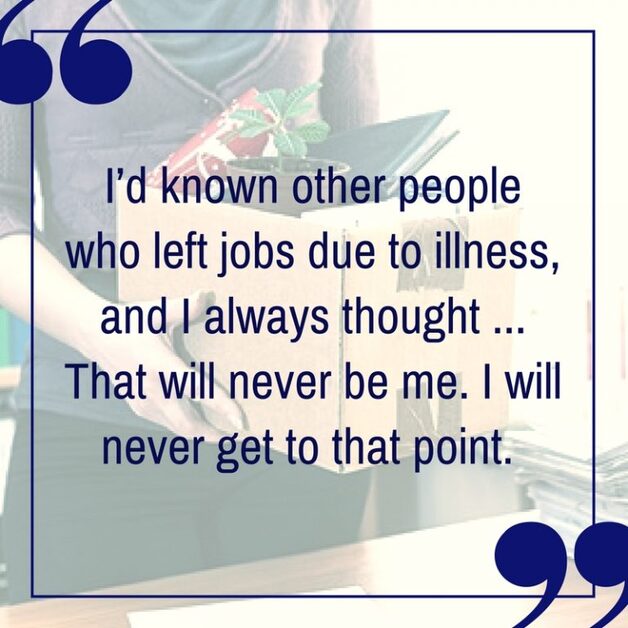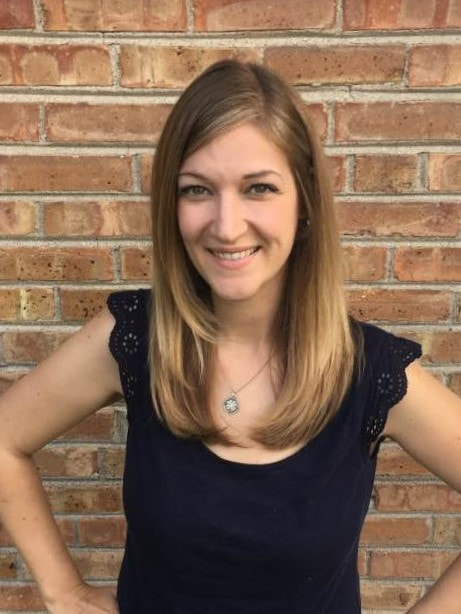|
This article was first published on the Global Lyme Alliance blog on October 18th, 2016. Most of the links on this post are informational, but a few are affiliate links to help maintain this website. For an educator, the start of the school year is filled with energy and excitement. There are students to meet, classrooms to decorate, and coworkers to catch up with. There is an undefinable sense of hope that comes with a new beginning. This fall, for the first time in ten years, when all the other educators went back to work, I wasn't with them. Instead, I was at sitting at home watching the steady stream of "first day of school" pictures on my computer. My career as a school social worker was cut short by Lyme disease. Two years ago, I thought I would have my job until I retired. It's rare for someone to give up tenure, a pension, affordable health insurance, paid sick days, and summers off. However, this year I opted for a part-time job as a college counselor to focus on healing. I never thought I would be the person who checks the "part-time" box on questionnaires. My entire identity was wrapped up in my career. I know I'm not alone. I've heard countless stories of teachers, doctors, and successful business people who were forced to leave behind a thriving career when illness struck. The careers they had worked their entire lives to build were suddenly gone or placed on permanent hold. Last year the mayor of Monticello, Illinois, resigned due to complications of Lyme disease. When he resigned at a town council meeting, he said, "I do this with great regret. It's one of the hardest things I've had to do." I couldn’t agree more. Leaving my job was truly the hardest decision I've ever made. This past summer, I agonized over whether or not to go back. I loved my job and I was making enough money so that I wouldn't have to worry about the high cost of Lyme treatment. I'd developed lifelong friendships with coworkers and every day I got to make a difference in the lives of young people. On the other hand, I wasn't getting any better, in fact I was getting worse. On a typical weekday I went from my bed, to work, to the couch, back to bed. I was living half a life. I'd known other people who left jobs due to illness, and I always thought, "That will never be me. I will never get to that point." I worked through the worst two years of my illness. The first year I missed 14 days of school because of doctor's appointments, being bedridden and a hospitalization. The second year I pushed through the year only to crash for an entire month of the summer. For the last two years, the beginning of the school year felt less like returning home and more like a shift back into stress, fatigue and pain. For people with chronic Lyme disease there comes a point where you can't do the things you used to do. You may not be able to work, engage in creative pursuits, or even socialize anymore. For some people the reality is disability and incapacitation. The difficulty is compounded because Lyme is an invisible illness and outsiders don't understand why you can't work. Other people think not working or working less is a gift. They don't think about the terrible suffering, the symptoms of the illness, or the fact that many people actually want to work. They want to make a contribution to their family's financial and emotional security and feel like they have a purpose in life. When there is a loss, you need to go through a grieving process. You need to allow yourself to be sad, confused, and even angry. For me, it's difficult, because I don't know what to call myself anymore. I hold a social work license, but I'm not doing social work. I have to grieve the loss of what could have been, then find a way to move beyond it. Recently, I've started walking a labyrinth in a nature preserve by my house. It's a walking meditation where you walk along a circular path. It has many switchbacks and turn arounds, but you're always moving closer to the center. I'd heard of labyrinths as a place to go when you're going through a difficult time in your life. The first time I walked the labyrinth was shortly after I left my job. As I was walking the path one day, I realized it was a metaphor for life. There are setbacks and times you need to turn around and retrace your steps, but even so, you are always making progress. I didn't know what was at the end of the labyrinth; when I got to the center, the word "hope" was spelled out in a mosaic. No matter where your life takes you, no matter the losses you must endure, whether it be illness, the loss of a job, or the loss the life you thought you'd have, it's important to know at the center of it all is that tiny word, hope. Hope like the first day of school. The final stage of the grieving process is often referred to as "acceptance and hope." During this stage we stop wishing for the life we used to have and accept the new normal. Maybe one day I will go back to being a full-time social worker, or maybe not. Right now, I'm trying to look at the loss of my career, not as a loss, but as a beginning. Maybe my job needed to go away in order for me to find a different path, a better path. Chronic illness has changed me. It changed the way I see the world and changed my goals. Even if the only goal right now is just to get better, I can't think of a more noble one than that. "There is nothing so easily remade as our definitions of ourselves." - Dinaw Mengestu
0 Comments
|
WelcomeI'm Kerry (She/Her/Hers) and I am a licensed therapist, group facilitator, poet, writer, & speaker. This is a place to acknowledge and validate our suffering and trauma, while also learning how to turn toward aliveness and spaciousness. Categories
All
Archives
April 2024
|
|
Copyright © 2024 Kerry J Heckman All rights reserved. Disclaimer.
|
|



 RSS Feed
RSS Feed